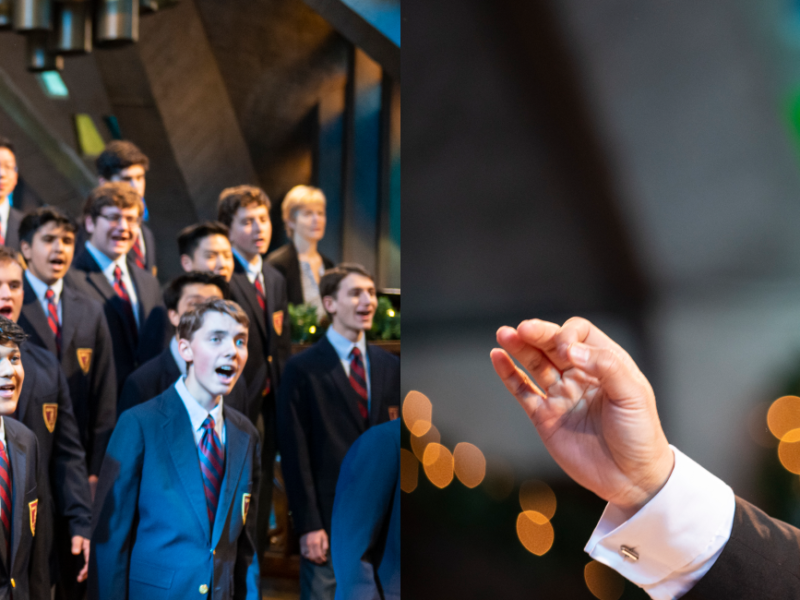What is it about Ragazzi?
There’s repeated evidence that Ragazzi boys value their experience learning great music with other male singers. In the past year, four former Ragazzi choristers auditioned to rejoin the chorus. These singers realized that they missed singing great music, missed their friends and were again willing to make the commitment to the hard work that leads to joyful self-discovery and sharing with our audiences.
While Ragazzi is important because it helps boys find community and express their emotions in a wide variety of musical styles, it is also important for its educational value to the boys, our families, our audiences and our culture. The December issue of the Atlantic magazine explained this in an article titled, “The Shazam Effect”. Shazam is a music identification app that also tracks trends (which music is popular, and where) around the world. The article notes that composers and music producers are analyzing music consumption patterns and generating new music that echoes the same structures – chord progressions and rhythms – that are selling big. While the industry is excited about being able to track taste in music, which is good for business, here is what the author, Derek Thompson, calls “the catch: if you give people too much say, they will ask for the same familiar sounds on an endless loop, entrenching music that is repetitive, derivative, and relentlessly played out.” Check out the comedy musical trio The Axis of Awesome on Youtube where you’ll find a song medley all based on the same four chords – it’s hilarious and a bit disturbing. [Parents: be aware there is one use of questionable language near the end.]
But guess what happens when people are exposed to a wide variety of music with varying degrees of complexity in structure, harmony and rhythms? They choose differently! Last week four members of our high school changed-voice group cornered me at rehearsal and begged to bring back a song from last year. Was it their pop/dance song? No, it was Exultate, an early Baroque song by Viadana. The pull to the familiar is still there, but what’s familiar to these young musicians is a beautiful, vastly more complex, renowned piece from hundreds of years ago.
What if more people became familiar with our long heritage of great music through hearing, learning, and training – and were able to share that music? I bet it would turn the music industry on its head. We would want to express ourselves in a larger context, drawing on all that makes us human, emotionally and spiritually. New connections in our brains would appear, as musical training has been shown to do. And we would be more welcoming of new sounds that connect us via our experience with a much broader array of forms and styles, emotions and substance.
This is just one more reason why music education is essential for our boys and for our world. Our singers may not be conscious of these benefits, but they know they like it and need it and they keep coming back.
—Joyce Keil
